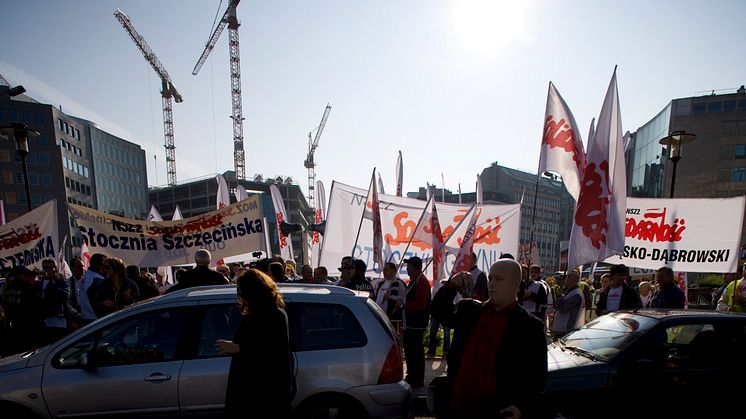
News -
Big differences in incidence of industrial action in companies across the EU
(Dublin, Ireland:) The global economic and financial crisis brought to an end an era of relative calm with regards to collective industrial action, and the highest incidence of industrial action was not surprisingly found in countries worst hit by the crisis. This is according to recent survey findings from Eurofound. Wednesday 18 February is the international day of action in defence of the right to strike, initiated by the International Trade Union Confederation ITUC.
Eurofound’s 3rd European Company Survey 2013 shows that almost one in 10 private sector establishments in the EU28 was faced with a strike lasting a day or more between 2008 and 2013.
Such strikes of a day or more were the most prevalent form of industrial action across Europe over the three years since the 2008 crisis (9% of private sector establishments), followed by work stoppages or strikes of less than a day (7%) and work-to-rule or refusal to do overtime (6%).
Across EU, one third of industrial action were company specific, two-thirds were ‘general’ (such as sectoral or national level issues). In company specific industrial action, a balanced agreement was reached in 44% of cases, while in 35% of cases the action ended unresolved
Greece recorded highest levels of work to rule (17% of establishments), strike less than one day (30% of establishments), strikes of more than one day (32% of establishments). Cyprus has highest levels of blockade of occupation (16% of all establishments).
Eurofound offers comparative data on days lost to industrial actions, where information is available and comparisons are possible.

